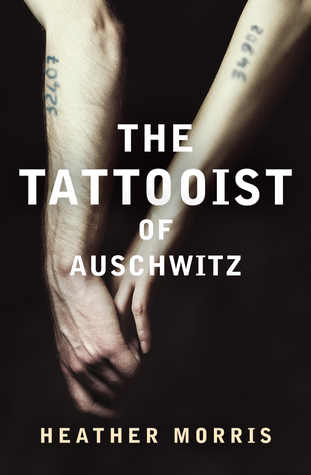—Charles Simic ("Charles the Obscure")
Mark opens the newspaper and is shocked to see his OWN obituary.
In a panic, he phones his friend and asks: "Did you see the paper?! "They say I died!"
The friend replies: "Yes, I saw it! So, where ya calling from?"
Two general notes to myself that always seems to work is give your characters quiet moments that dramatize character, especially early in the script/story, and give the big emotional beats time to play out. Let it breathe when it needs to breathe.
*Breathing satire into ghosts of genocides under colouful pseudonyms - The Death of Jozef Stalin aka Vladimir Putin
MEdia Dragon is one of the few soldiers who survived Czechoslovak army in the late 1970s without getting a tatoo ... While older soldiers ensured that during the latitudinal struggle few teeth were lost and at the end of the day the result is the body remained tatooless. So no geckos or Austwich numbers ... How things changed even girls these days get the mark of the devil on their bodies -- to boot they even pay for these body tattoos ;-) At least in the communist army and navy the tattoos were free ...
"Around our world, we see divisions widening and conflicts deepening," Prime Minister Malcolm Turnbull has declared on International Holocaust Remembrance Day, warning people to learn from one of the darkest chapters in human history. In a statement, Mr Turnbull said it was as important as ever to contemplate the ...
The Tattooist of Auschwitz
The Tattooist of Auschwitz is based on the true story of Lale and Gita Sokolov, two Slovakian Jews who survived Auschwitz and eventually made their home in Australia. In that terrible place, Lale was given the job of tattooing the prisoners marked for survival - literally scratching numbers into his fellow victims' arms in indelible ink to create what would become one of t...mor
e
e

A Slovak prisoner tattooed in Auschwitz, remained silent until he ...
The Slovak Spectator
Lale Sokolov, a name he later adopted, did not talk about his experience of the Nazi concentration camp at Auschwitz for more than 50 years. He feared that he would be perceived as a collaborator and a traitor. Now, 11 years after his death, a book describing his fate by Heather Morris, called The Tattooist of Auschwitz
For years, author Heather Morris conducted interviews with Holocaust survivor and Auschwitz-Birkenau tattooist Ludwig Sokolov, known as Lale. This is the story of how he arrived at the camp, survived being left for dead and landed a job inking prisoners – including one who proved to be very special.
For years, author Heather Morris conducted interviews with Holocaust survivor and Auschwitz-Birkenau tattooist Ludwig Sokolov, known as Lale. This is the story of how he arrived at the camp, survived being left for dead and landed a job inking prisoners – including one who proved to be very special.
APRIL 1942
Lale rattles across the countryside, keeping his head up and himself to himself. The 24-year-old sees no point in getting to know the man beside him, who occasionally nods off against his shoulder; Lale doesn't push him away.
He's just one among countless young men stuffed into wagons designed to transport livestock. Having been given no idea where they were headed, Lale dressed in his usual attire: a pressed suit, clean white shirt and tie. He tries to assess the dimensions of his confinement.
The wagon is about two and a half metres wide. But he can't see the end to gauge its length. He attempts to count the number of men on this journey with him. But with so many heads bobbing up and down, he eventually gives up. He doesn't know how many wagons there are. His back and legs ache.
His face itches. The stubble reminds him that he hasn't bathed or shaved since he boarded two days ago. He is feeling less and less himself.
After two days the cattle train stops again. This time there is a great commotion outside. Dogs are barking, orders are yelled in German, bolts are released, wagon doors clang open. "Get down from the train, leave your possessions!" shout the soldiers. "Rush, rush, hurry up! Leave your things on the ground!" Being on the far side of the wagon, Lale is one of the last to leave.

Lale and Gita on their honeymoon in the Tatra Mountains, Slovakia, in 1945 - the year the Russians liberated Auschwitz.
Meet The Man Who Tattooed The Prisoners Of Auschwiz
Cow runs off to live with Polish bison
My friends, if our heads rollsomewhere into a deep pit,
may the world know: among the poets,
MEdia Dragon was the brother of us all.
“Of all the cities in the world,
of all the intimate homelands
that a man searches for (to deserve)in the course of his travels ...
The world is a vast, magical place with so many places to see, and for those fortunate enough to be able to travel, Europe is often a top destination–not only the beauty and history but also for the fun and exciting environment. Head for Praha ....
“…Books, texts, magazines, are tombs … tombs that eventually will be opened. The duty I say again THE DUTY of the writer, of the poet, is not to go shut himself up as a coward in a text, a book, a magazine from which he will never emerge again but on the contrary to go out to shake up to attack the public spirit … if not of what use is he? And why was he born? … the quest for a speech that any road mender or dolt would have understood ….”
I believe,” he said, “there’ll be big waves of crime after the war. You can’t have so much killing, so much teaching to destroy, and then stop it suddenly. . . . The old kinds of crime, and new crimes against the holiness in the heart. There’ll be fear, and shame, and guilt, guilt. People will be mad. There’s no such thing as victory in war. There’s only misery, chaos and suffering for everybody, and then the payment. . . . There’s only one victory–over the evil in the heart. And that’s a rare miracle.” His voice faltered in defeat. “I’ve been trying to make the attempt. But the air I breathe is full of poison
It’s a wonder that anyone would go through the trouble of giving a Russian any sort of prize. If history is to be our guide, it seems more trouble than it’s worth. A political cartoon from 1959, drawn by Bill Mauldin, makes this plain. The scene: Russian author Boris Pasternak and another prisoner in Siberia splitting trees in the snow. The caption: “I won the Nobel Prize for Literature. What was your crime?”

The bloody rise and shocking fall of a US spymaster in Cold War Korea Asia Times
Gone is the century of the self. Now we inhabit the century of the crowd. What will it do to literature? Early indications are not promising... crowd
The question lurking behind these attractions and choices is not one of enchantment but: how does one overcome the wall? But perhaps this question is misleading. When discussing his early frustrations with writing, the author who described Saul Bellow's tone of voice talks about what he learned from certain authors:
Gone is the century of the self. Now we inhabit the century of the crowd. What will it do to literature? Early indications are not promising... crowd
The question lurking behind these attractions and choices is not one of enchantment but: how does one overcome the wall? But perhaps this question is misleading. When discussing his early frustrations with writing, the author who described Saul Bellow's tone of voice talks about what he learned from certain authors:
Proust had given me the confidence to fail, had driven home to me the lesson that if you come up against a brick wall perhaps the way forward is to incorporate the wall and your effort to scale it into the work. I had read Robbe-Grillet and Marguerite Duras, and been excited by the way they reinvented the form of the novel to suit their purposes – everything is possible, they seemed to say. But when you start to write all that falls away. You are alone with the page and your violent urges, urges, which no amount of reading will teach you how to channel. ‘Zey srew me in ze vater and I had to svim,’ as Schoenberg is reported to have said. That is why I so hate creative writing courses – they teach you how to avoid brick walls, but I think hitting them allows you to discover what you and only you want to/can/must say.
It’s been amazing to watch in 2017 the numerous Twitter memes riffing on the “This Is Just To Say” poem about plums in the icebox written by William Carlos Williams in 1934.
The original poem, a true example of modernist poetry, goes:
I have eaten
the plums
that were in
the icebox
the plums
that were in
the icebox
and which
you were probably
saving
for breakfast
you were probably
saving
for breakfast
Forgive me
they were delicious
so sweet
and so cold
they were delicious
so sweet
and so cold
The meme sees people applying the style of zero punctuation and sharp, short wording to numerous pop songs such as Mambo #5, Ice Ice Baby, and Call Me Maybe. It’s one of Twitter’s more cerebral memes of recent times but it’s wonderful to see poetry alive and vibrant… even when there’s a Vanilla Ice connection.
a little bit of cold plums in my life
a little bit of icebox by my side
a little bit of breakfast is what you need
a little bit of forgiveness, what I seek
a little bit of delicious, thats those plums
a little bit of sweet plums all night long
a little bit of cold plums here I am— thom (@thwphipps) November 28, 2017
HEY i just met you
and this is CRAzy
but the plums in the icebox
i ate them maybe— Your Trusted Wizard (@Choplogik) November 28, 2017
